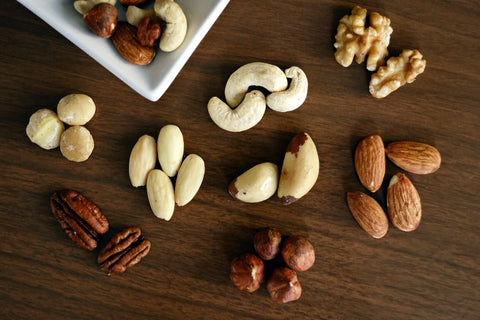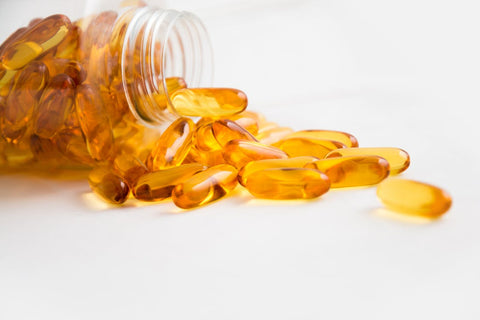In one of our recent articles, we took a deep dive into the three macronutrients: protein, carbohydrates, and fats. Each of these nutrients is vital for keeping your body functioning optimally and keeping you healthy. They are essential for bodily functions from digestion through to immunity, energy, and much more. However, they are not the whole story.
To enjoy optimal health, we must look beyond macros and also consider micronutrients. These vitamins and minerals are so named because they are required in very small amounts. Don’t be fooled, though: they are no less important and a deficiency in a key micronutrient can lead to severe health complications.
Here are just five of the essential micronutrients your body needs, and some tips on how to make sure you are getting enough.
Vitamin D

Often termed the “sunshine vitamin”, Vitamin D is crucial for bone health. It aids in calcium and phosphorus absorption and retention, which is essential for maintaining healthy bones and teeth. Beyond bone health, Vitamin D also supports immune system function, brain health, and even plays a role in mood regulation and warding off depression.
The skin can produce Vitamin D when exposed to sunlight. This is one of the reasons that Vitamin D deficiencies are so common in parts of the world with colder and darker weather. It is also important to take care of your skin when you are out in the sun, as too much direct sunlight without adequate protection can increase your risk of skin cancer.
It is also possible to consume Vitamin D through your diet. Great sources include fortified foods, fatty fish (like salmon and mackerel), cheese, and egg yolks.If you are struggling to get enough, Vitamin D supplements can help.
Vitamin C

This powerful antioxidant supports immune function and healing processes. It helps to protect the body’s cells from the negative effects of free radicals, which are thought to play a role in the development of various diseases including heart disease and some cancers. It also helps the body to form blood vessels, cartilage, muscle and collagen in bones
Vitamin C is commonly associated with citrus fruits such as oranges and lemons. However, Vitamin C can also be found in numerous other fruits and vegetables including strawberries, bell peppers, broccoli, and Brussels sprouts. The key is to consume a wide variety of fresh produce–keep your plate as colorful as you can!
Iron

Iron plays a pivotal role in producing hemoglobin, a protein in red blood cells that is responsible for transporting oxygen from the lungs throughout the body. An iron deficiency can lead to a condition called anemia, which causes a reduction in the number of red blood cells.
There are two types of iron: heme and non-heme. Heme iron is found exclusively in animal products such as meat and seafood, and is absorbed more efficiently by the body. Non-heme iron is found in plant-based foods and is less easily absorbed. This means that those who do not eat animal products, such as vegetarians and vegans, may benefit from iron supplements.
Red meat, poultry, and seafood are rich in heme iron. Non-heme iron can be consumed from foods such as lentils, beans, tofu, and fortified cereals.
Magnesium

Magnesium is an often overlooked micronutrient, but plays many crucial roles in the body. It helps to maintain healthy muscle and nerve function, aids in keeping neurotransmitters (which send messages from the brain to the rest of the body) healthy, regulates blood sugar levels, and much more.
A magnesium deficiency can lead to a variety of symptoms including a reduction in appetite, nausea or vomiting, and muscle spasms. Foods rich in magnesium include almonds, spinach, cashews, black beans, and whole grains.
Zinc

Like Vitamin C, zinc plays a vital role in retaining healthy immune system function, helping the body to fight off the bacteria and viruses that can cause illness. It also plays a role in the production of DNA and proteins in the body.
Since zinc is key to growth and development, it is particularly important for pregnant people, infants, children, and adolescents to consume enough of it. A zinc deficiency can result in skin problems (which may initially resemble eczema) as well as hair loss, diarrhea, and wounds that take an unusually long time to heal.
Zinc can be found in a variety of foods including oysters (which contain amongst the highest concentrations of zinc of any food), red meat, poultry, beans, nuts, and many dairy products.
Are Micronutrient Supplements Right for You?

Many micronutrient deficiencies can be addressed through the use of supplements if you are not able to get enough from diet alone. Always consult with your healthcare provider before taking any kind of supplement.
